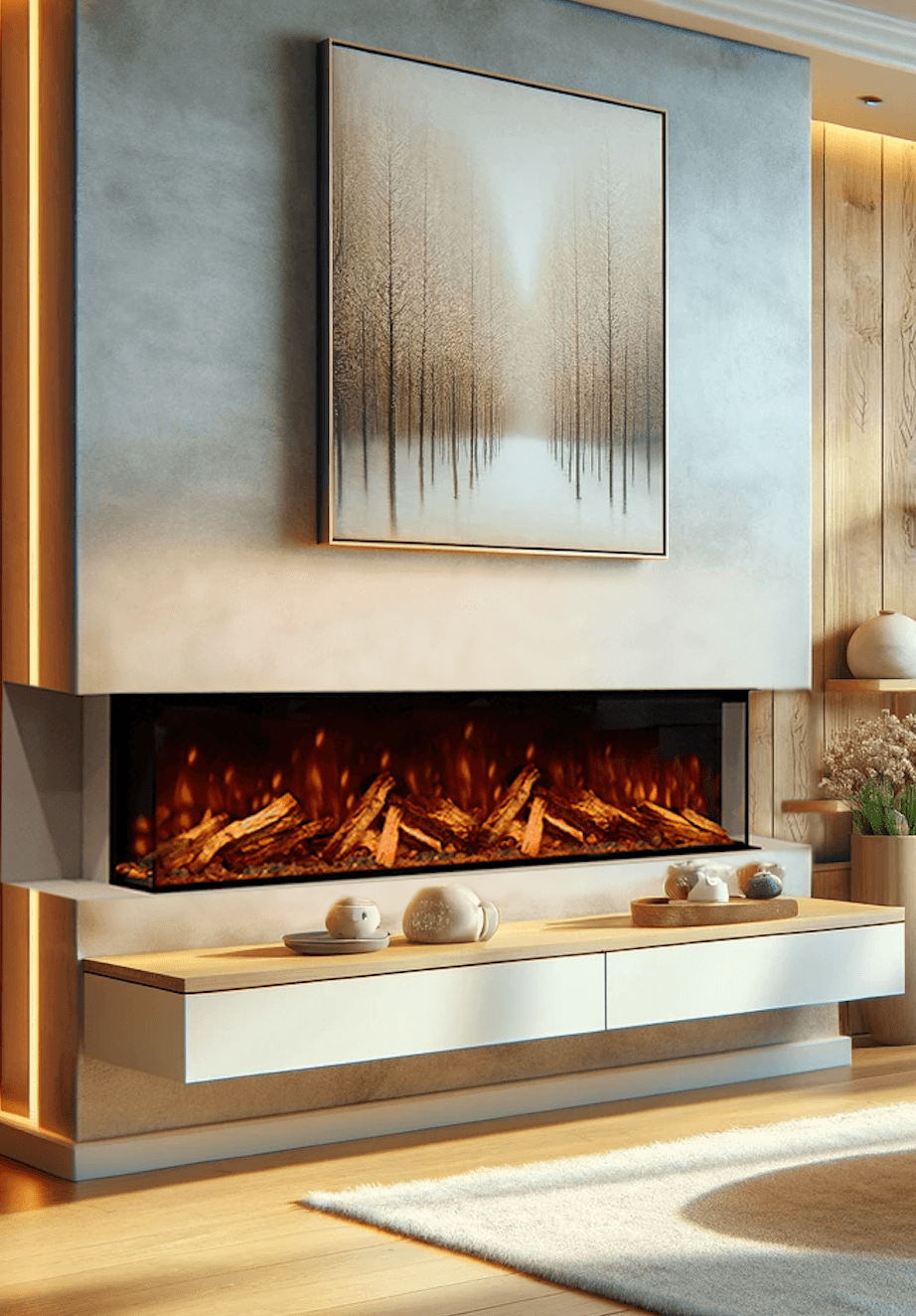
Are electric fireplaces noisy?
Electric fireplaces create the illusion of a warm, flickering fire without there being any actual burning fuel or flames. To create the realistic flames and heat output of an actual fireplace, electric fireplaces use internal mechanisms such as rotating lights and air blowers. Due to these mechanisms, all electric fireplaces will produce some level of noise; which is very minimal.
Are electric fireplaces noisy?
Electric fireplaces lack any real fire or burning fuel. Instead, they use a series of internal mechanisms to create the illusion of a fire. These mechanisms are designed to give the electric fireplace the highly realistic look and feel of other traditional types of fireplaces like wood or gas-burning stoves. During operation, the moving parts inside the fireplace will produce a small amount of noise.
Noise-producing components of electric fireplaces
The two aforementioned mechanisms that electric fireplaces use to create the illusion of a real fire include a flame effect and an internal heating element. Both of these mechanisms in the electric fireplace may produce some noise while it’s switched on and running.
Flame effect
To first look at the flame effect mechanism, electric fireplaces create the look of real flames using a combination of LED lights, rotating mirrors, and a screen. The mechanism shines the arrangement of LED lights onto a bar of strategically placed rotating mirrors; the light that is refracted off the mirrors onto the fireplace’s screen then creates the illusion of realistic flickering flames.
You may worry that this part of the electric fireplace would be noisy, as it’s constantly rotating and moving while the flames are switched on. However, this mechanism doesn’t tend to produce much noise at all.
Heating element
The second mechanism in the electric fireplace that may produce noise is the fireplace’s heating element. As the flames in an electric fireplace are only an illusion of light, they don’t produce any actual heat. The heat given off by an electric fireplace is instead generated by a heating element within the unit.
Electric fireplaces typically have one of two types of heating element, either using a fan-forced heater or an infrared heater. In general, infrared heaters tend to be quieter compared to those that are fan-forced.
Fan-forced heaters use air blowers to heat a room. A fan-forced electric fireplace will take in cool air from the room using an inlet, blowing the air over a heating element before expelling it back into the room. Due to this mechanism, fan-forced electric fireplaces have the potential to be noisy, especially if they’re running in a high setting.
Infrared heaters instead heat a room using infrared technology. They use a quartz bulb to produce heat that radiates into the room, without the use of an inlet or outlet blower like a fan-forced heater. As electric fireplaces that use infrared technology lack these moving parts, they generate little to no noise at all during operation. This makes them a much quieter type of electric fireplace, albeit being the more expensive type too.
What type of electric fireplace is quietest?
To summarise what we explained in the previous section, the quietest type of electric fireplace is one that uses infrared heating technology. Compared to the heaters in fan-forced units, the heating elements of these fireplaces don’t require inlet or outlet blowers, or any moving parts at all. The only moving parts in infrared-technology fireplaces would be the light mechanism, which produces very little noise on its own. This makes fireplaces with infrared heaters the quietest type of fireplace overall.
Why is my electric fireplace so noisy?
As we’ve said, it’s normal for all electric fireplaces to produce at least a little amount of noise. However, if your fireplace is excessively noisy or produces strange sounds, it could be an indication of a serious problem with your unit. Follow these steps to troubleshoot a noisy electric fireplace:
- Take a look over your fireplace, checking all connections are tight and secure. Use a screwdriver to tighten all of the screws as tight as possible - the moving parts in your unit can cause vibrations that slowly loosen these connections over time, which in turn could make the fireplace rattle during operation.
- If you have a fan-forced heater, you should next clean out the blower fan. Depending on your particular fireplace model, this may require you to remove the fan’s cover or panel. Use a soft cloth or a soft brush vacuum attachment to clean dust and debris out of the blower fan. A build-up of dust on the heater may be what’s causing the fireplace to be so noisy.
- If neither of the previous two steps fixes the problem, you should next determine whether the flame effect is causing the noise. Switch your electric fireplace on and observe whether the noise you hear coincides with the movement of the flames. If damaged, the rod that creates the flame effect can rub against other internal parts of the fireplace, causing it to be noisy while it’s operating. The flame effect should generate little to no noise at all if operating as normal.
- If your fireplace has a flame-only setting, turn off the heater but leave the flames on. If you can hear a grinding noise, this is a sign you need to replace the mechanism’s flame motor; if you can hear a buzzing noise, this instead indicates that the flame speed control is faulty. If the fireplace isn’t as noisy on its flame-only setting, switch on the heater; you’ll know that the blower motor is faulty if the noise only starts after the heater is switched on.
Noisy electric fireplaces: conclusion
In summary, your electric fireplace will inevitably produce at least a little amount of noise while it’s switched on. While those with infrared technology can be nearly silent, fan-forced electric fireplaces have the potential to be a bit noisier. An electric fireplace that is extremely noisy is often an indication that the unit needs to be cleaned or repaired - electric fireplaces are otherwise relatively quiet and shouldn’t disturb you during their typical operation.

